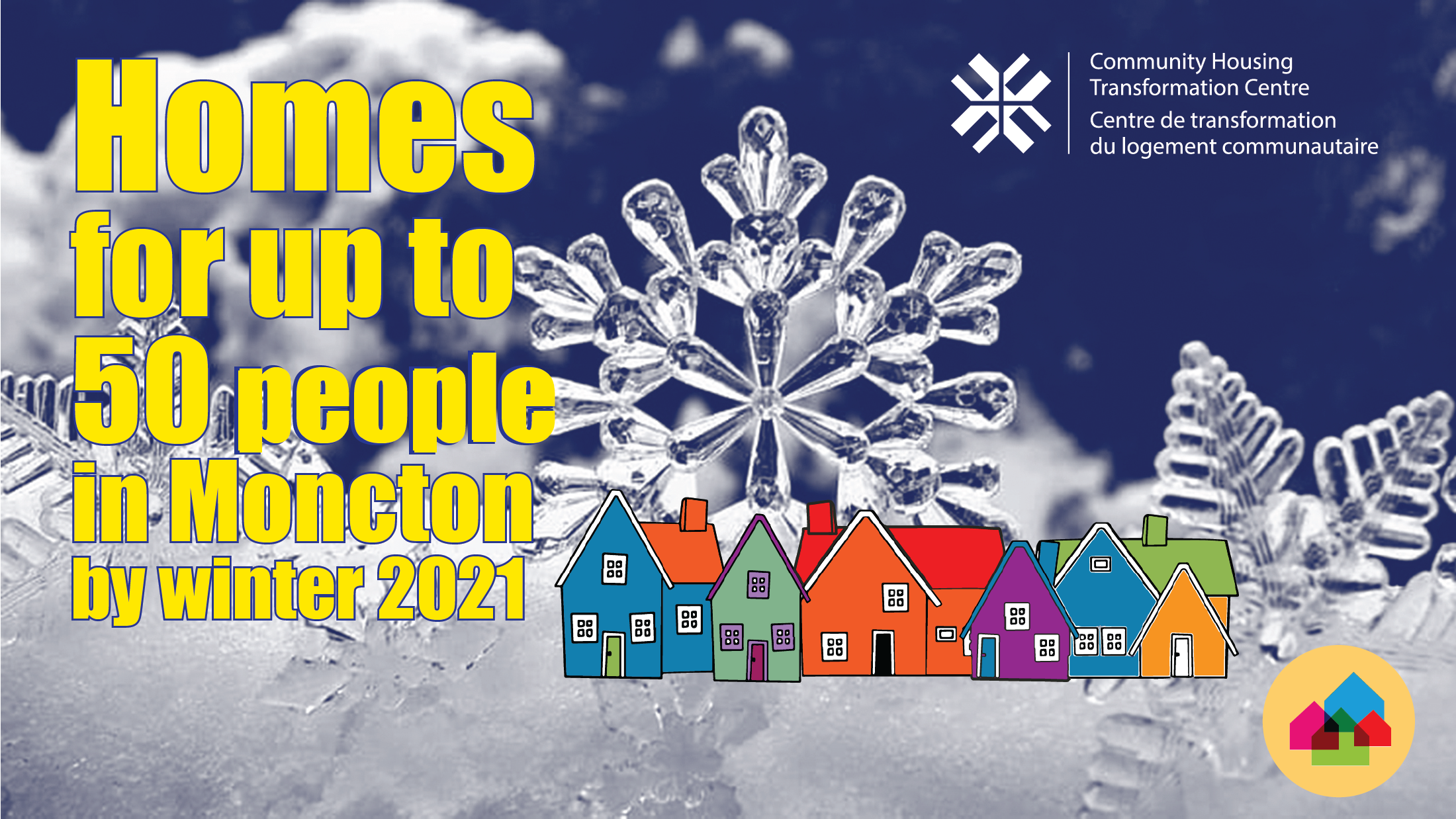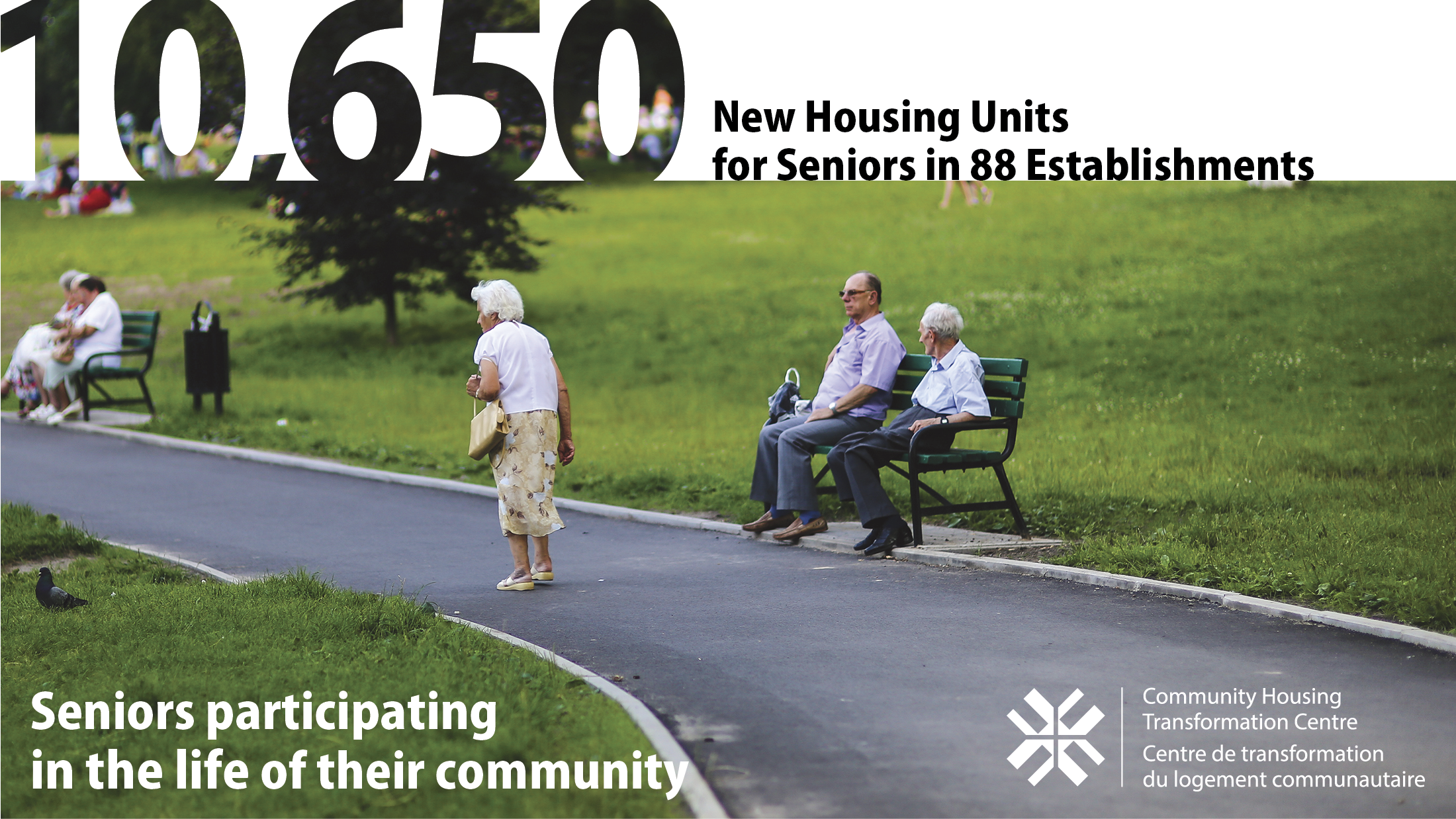Sector Growth
We believe it is necessary to anchor the development of the community housing stock in long-term growth, so that housing providers and organizations in the sector can build their capacity to operate more sustainably.
Over the past ten years, an average of 201,070 new homes have been built per year across the country. Over the same ten years, the number of households has increased by nearly 150,293 per year.
Yet, according to the 2011 and 2016 censuses, 322,600 affordable housing units disappeared during that interval. The indicators available to us since 2016 even tend to show that the loss could be at least at 500,000 units, especially since the total net number of community housing units has been stagnant at 600,000 for the past 25 years. Even the Canadian government’s National Housing Strategy limits its aspirations to 50,000 new community housing units by 2028, out of a total of 100,000 new affordable homes.
There are three distinct levers that the community housing sector can use to foster sector growth:
- Advocating for the sector as much in the public arena as with policy makers, including for budgetary, regulatory and policy measures that support rapid community housing development
- Leveraging our assets, as the community housing movement has resources that include land, buildings and financial reserves which, if well co-ordinated, can make a real difference
- Using our creativity and innovation to maximize our gains and efficiency for the benefit of marginalized communities
We therefore commit to:
- Encourage and facilitate sustainable growth through existing funding mechanisms
- Support the exploration of new growth strategies such as acquisition and land trusts
- Enhance the dissemination and use of promotional tools that promote community housing as a solution for the future
- Identify and address sector gaps in emerging issues and overlooked opportunities, including the impact of economic boom and bust cycles

Self-Assessment Tools
Run a health check on your organization using the Organizational Compass and the Green Compass. Fill out our free online self-assessment form to:
- Identify your strengths and weaknesses
- Access an automatically generated action plan
- Consult the list of resources available to implement the plan

Grants
- Local Projects
- Sectoral Projects
- Nunalingni Piruqpaalirut Fund
- Nova Scotia’s Community Housing Growth Fund

Services
- Energy efficiency coaching services
- Self-assessment tools
- Resource inventory
- Special projects
News on sector growth

A pilot project to expand community housing in Prince Edward Island
Prince Edward Island (PEI), known for its picturesque landscapes and rich cultural heritage, is now making strides with a pilot project aimed at expanding community housing. The province, in partnership […]

Canadians want to know more about community housing
A recent national survey conducted by Abacus Data for the Co-operative Housing Federation of Canada reveals a powerful insight: Canadians are not only open to community housing, they want more […]

The Nunalingni Piruqpaalirut Fund update webinar
Are you working to improve housing conditions in Nunavut? The Nunalingni Piruqpaalirut Fund (NPF) is a grant program dedicated to supporting Nunavut community housing projects. Join us on Tuesday, May […]
Awarded Grants
Discover projects related to sector growth



